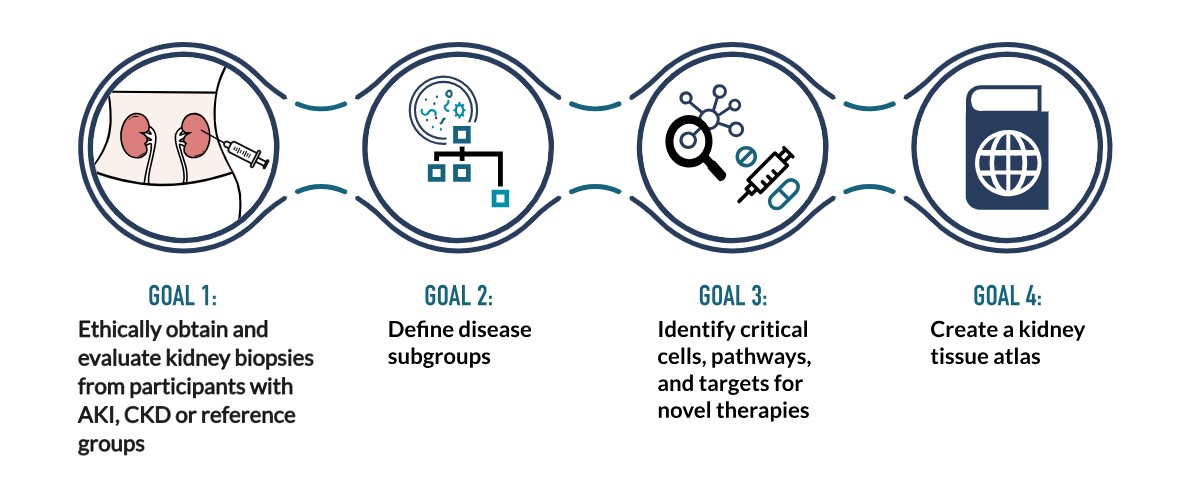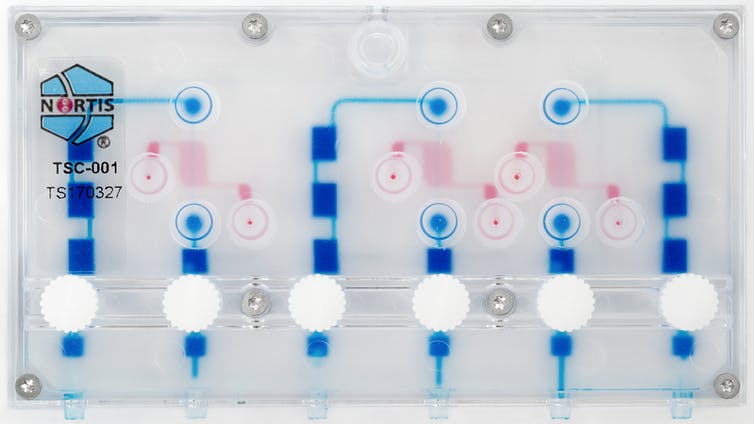Kidney on a chip
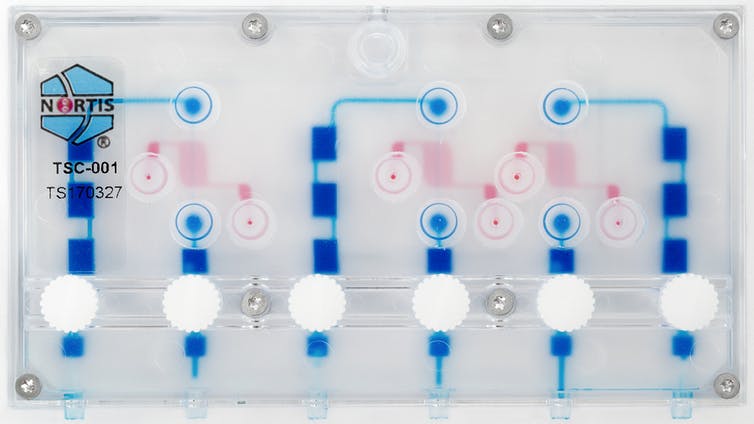
A kidney on a chip is a credit card-sized model that uses 3D scaffolding to replicate a working human kidney. It's a microfluidic, microphysiological culture system incorporating fluid flow and mechanical stimuli to mimic normal kidney function and the in vivo microenvironment. The model can reproduce 2D or 3D features of kidney tissue architecture, composition, and dynamic mechanical forces experienced by cells in vivo.
Researchers can use the kidney on a chip to:
- Study the workings of both healthy and diseased kidneys
- Examine and damage the proximal tubule to see how it works
- Understand how the kidney processes new drugs
- Test the effects of drugs in a natural model
- Apply drugs with a syringe, pushing medications through the system
- Compare the toxicity of different products at different doses
The 'why' and 'what' of 'kidney on a chip'
Kidney Organoids
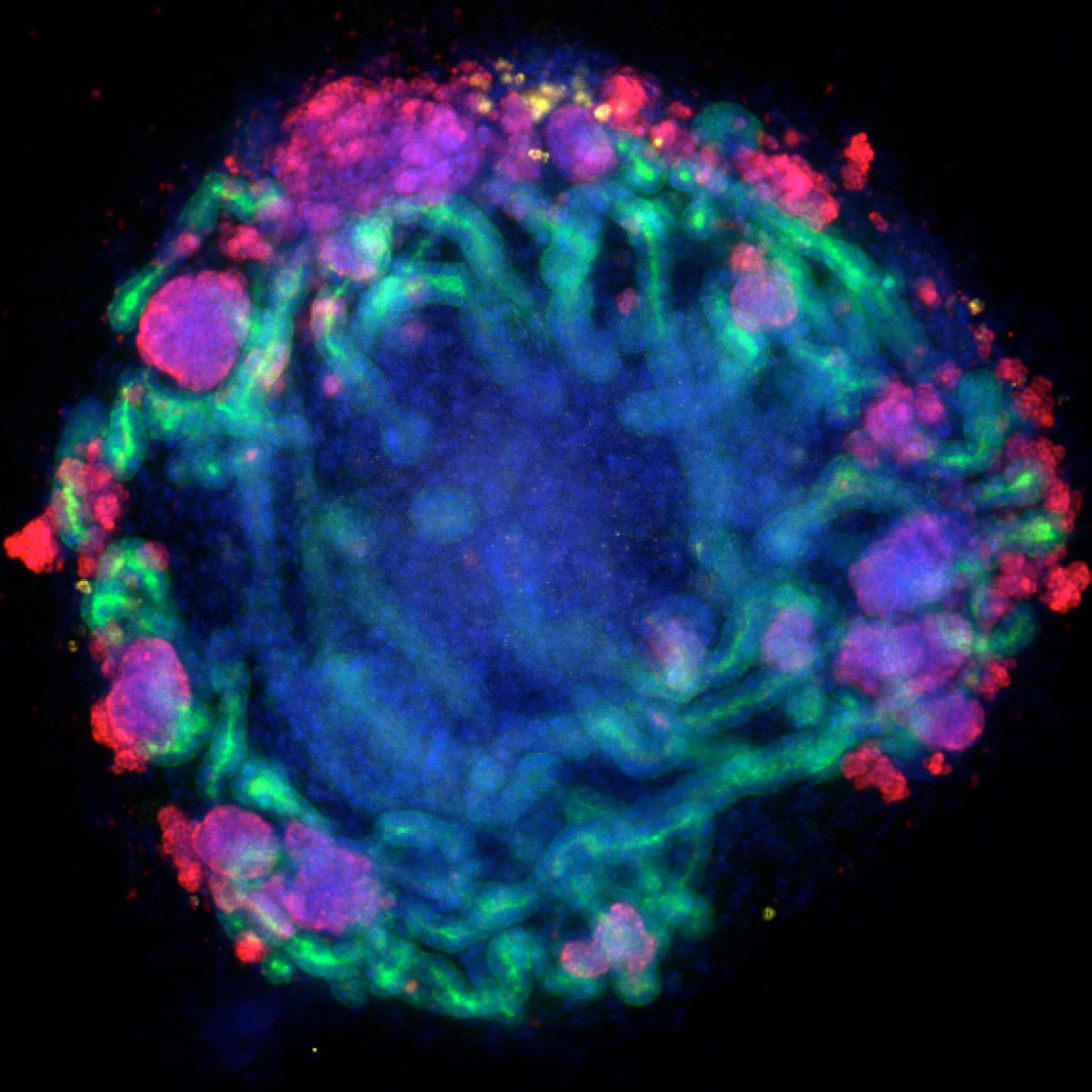 By creating mini-kidney organoids that contain a realistic micro-anatomy, UW Medicine researchers track the early stages of polycystic kidney disease.
By creating mini-kidney organoids that contain a realistic micro-anatomy, UW Medicine researchers track the early stages of polycystic kidney disease.
Benjamin Freedman, associate professor of medicine in the Division of Nephrology at the UW School of Medicine, and his team at the Kidney Research Institute, led studies in conjunction with scientists at other institutions in the United States and Canada. Freedman and his group also are investigators at the UW Medicine Institute for Stem Cell and Regenerative Medicine.
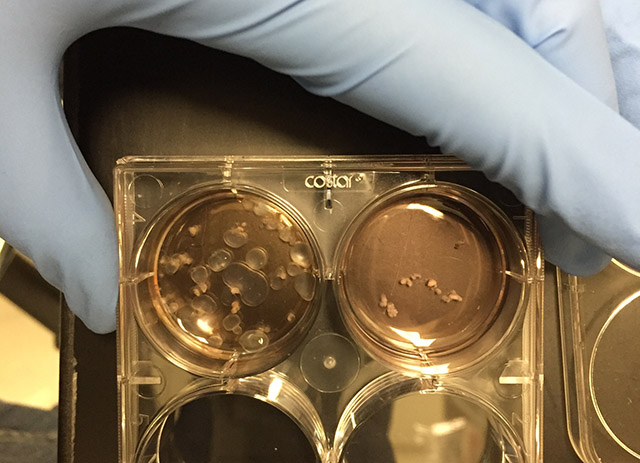
"Mini-kidney organoids reveal renal disease secrets"
UW Medicine Newsroom
The Kidney Precision Medicine Project
 The KPMP is an ambitious, multi-year project funded by the NIDDK to understand and find new ways to treat chronic kidney disease (CKD) and acute kidney injury (AKI).
The KPMP is an ambitious, multi-year project funded by the NIDDK to understand and find new ways to treat chronic kidney disease (CKD) and acute kidney injury (AKI).
Together with patient representatives, researchers, and clinicians, the KPMP consortium is committed to meeting the goals of the study and the needs of the kidney disease community.
KPMP Goals: